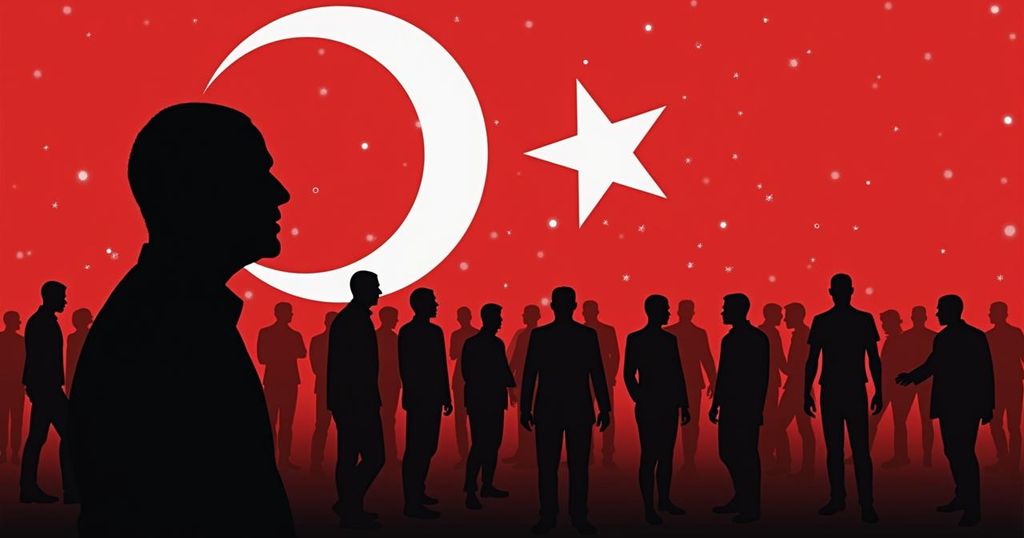Kais Saied is projected to win the Tunisian presidential election with 89.2% of the votes, as per an exit poll. Voter turnout was reported at 27.7%. Saied’s administration has faced significant criticism for authoritarian practices and suppression of opposition, while Tunisia struggles with economic challenges.
The recent presidential election in Tunisia appears to favor the incumbent, President Kais Saied, who is projected to secure 89.2 percent of the votes according to an exit poll released by state television. This outcome indicates a consolidation of Saied’s authority following his controversial power seizure three years prior. The official results of the election are anticipated to be disclosed by the Independent High Authority for Elections of Tunisia (ISIE) on Monday evening. In this electoral contest, President Saied, aged 66, faced two challengers: Zouhair Maghzaoui, the leader of the Chaab Party and a former ally, and Ayachi Zammel, a businessman whose candidacy was notably weakened after his incarceration last month. As per the exit poll results, Maghzaoui garnered 3.9 percent of the vote, while Zammel received 6.9 percent. Voter turnout for this election was reported at approximately 27.7 percent, a figure that the ISIE spokesperson, Mohamed Tlili Mansri, projected would reach around 30 percent. The political landscape in Tunisia has been fraught with tension, particularly among leading figures from significant political factions who oppose Saied and have faced imprisonment. Notably, Rached Ghannouchi, the head of the opposition Ennahda party, has been jailed, reflecting a broader crackdown on dissent since Saied’s rise to power in 2019. Under Kais Saied’s presidency, critics argue that democratic gains achieved during the 2011 Arab Spring have been dismantled, though Saied maintains that his administration’s actions are aimed at combating corruption among the elite and safeguarding the nation from perceived treachery. Notably, in the lead-up to the election, discord intensified as the electoral commission, appointed by Saied, disqualified three candidates, prompting protests from both the opposition and civil society. Tunisia also grapples with substantial economic challenges, including sluggish growth rates, rampant inflation, and elevated unemployment, which have fueled public discontent. Moreover, legislative actions taken by Saied’s allies have further limited the autonomy of judicial bodies, which are seen as primary checks on governmental power. Notably, Saied dissolved the Supreme Judicial Council and dismissed several judges, heightening concerns over the preservation of democratic integrity. This political maneuvering is compounded by historical events, such as the dissolution of the elected parliament in 2021 and the subsequent rewriting of the constitution, which faced low voter engagement in the referendum process. Amid ongoing protests and political repression, the future of Tunisia’s democratic structure remains precarious, with the election outcomes potentially reinforcing Saied’s already significant grip on power.
The political landscape in Tunisia has undergone significant alteration since the Arab Spring, a series of protests that led to the ousting of long-standing authoritarian regimes. The 2011 revolution ushered in a period of democratic transition, culminating in the election of Kais Saied in 2019. However, since taking office, Saied has faced mounting criticism for actions perceived as authoritarian, including the dissolution of parliament and judicial restructuring that bypasses democratic norms. These developments, coupled with severe economic challenges, have contributed to a tense atmosphere leading up to the 2024 presidential election.
In summary, the exit polls indicate a decisive victory for President Kais Saied in Tunisia’s presidential election, reinforcing his contentious rule marked by significant power consolidation. The election occurs against a backdrop of increasing political repression and economic stagnation, raising concerns regarding the future trajectory of democracy in Tunisia. As the ISIE prepares to release official results, the implications of this electoral exercise for the Tunisian political landscape remain to be fully understood.
Original Source: www.aljazeera.com







